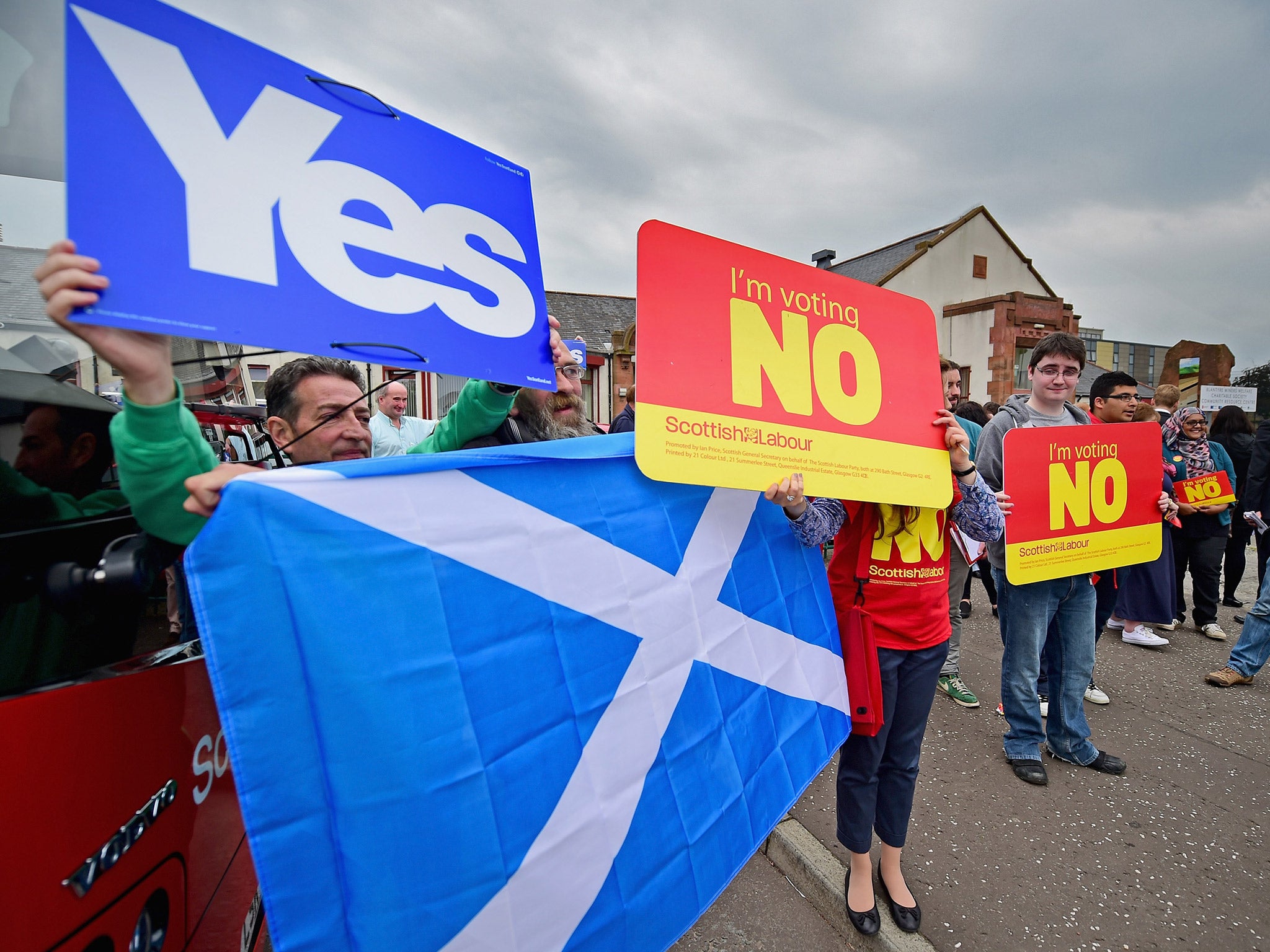For Labour to stand a chance in Scotland now, it has to reassess its position on independence
An election has to revolve around policy issues, or other parties outside the SNP won't get a look in

As anyone who has seen David Fincher’s 1999 film will know, the first rule of Fight Club is that “you do not talk about Fight Club”. To emphasis its importance, this was also its second, but in modern Scottish politics the reverse is true: the first rule of the post-referendum era is that you do talk about the referendum.
Since earlier this year, and particularly since the election of Jeremy Corbyn as Leader of the Opposition, the SNP has done little else, determined to maintain momentum and grassroots support by talking up the prospect of another plebiscite on independence.
This is a problem for the Scottish Government’s unionist opponents as it’s a frame that generally favours the nationalists. Thus Kezia Dugdale and Willie Rennie, the Scottish Labour and Liberal Democrat leaders respectively, have hit upon a novel solution: to avoid talking about a second referendum, they have both been talking about a second referendum.
A few days ago Dugdale said she was “completely comfortable” about past and future Yes supporters finding “a home in the Scottish Labour Party”, while Rennie said that if Liberals couldn’t be “tolerant about people taking different views on the constitution, what can we be tolerant about?” In doing so, both leaders were explicitly sanctioning their respective supporters backing independence in another referendum.
On one level it was a pragmatic recognition of political reality. Last September something like 30 to 35 per cent of Scottish Labour voters said “Yes”, as did around a quarter of Scottish Liberal Democrats. And at this year’s general election most of those voters converted their support for independence into support for the SNP, therefore both parties are keen to emphasise they don’t bear grudges.
So it’s a finessing of existing policy rather than a major U-turn. During the 2012-14 referendum campaign several prominent Labour and Liberal Democrat figures (and even one or two Conservatives) campaigned for a Yes vote. Few if any were expelled from their respective parties, although it was certainly embarrassing and undermined the “Better Together” message.
These recent statements are also an attempt to decouple two distinct – but currently conflated – political fights in Scotland: constitutional and policy. And the reason is clear, for within a few months the “long” campaign for next May’s Scottish Parliamentary elections will be under way.
Thus the three unionist parties are trying to neutralise the constitutional fight and nudge the forthcoming election onto a domestic policy frame which they believe – rightly or wrongly – will make life slightly more difficult for the SNP. More specifically, they hope that by “showing a bit of leg” on independence (as one adviser put it), then Yessers might be more willing to back Labour or the Liberal Democrats on Holyrood’s top-up PR list vote.
SNP leader and First Minister Nicola Sturgeon appears to be up for the fight, recently telling a journalists’ lunch in Edinburgh that next year’s election would be fought on her administration’s “record” while challenging her Labour and Lib Dem counterparts to take their positions to the “logical conclusion” of actually supporting another referendum, which they currently do not.
The logic of that challenge was unclear; after all, the SNP takes tactical positions relating to Scotland’s place within the UK and that hardly implies support for the status quo. That said, Dugdale and Rennie’s political amnesty on Labour and Lib Dem supporters of independence isn’t without risks.
First, it erodes the unionist stance adopted by the two parties during last year’s referendum campaign, potentially confusing their core voters (admittedly a diminishing band, particularly in the case of the Scottish Lib Dems) as to what exactly they stand for in constitutional terms. As the Scottish Conservative leader Ruth Davidson said of Labour, it seemed odd for a party “supposedly committed” to the Union to give its support to MSPs and activists who might want to campaign for independence.
Davidson also referred to support for the Union as that “most vital of issues”, but in truth, hardline, undiluted support for the status quo did neither Labour nor the Liberal Democrats any favours in 2014 or 2015, so by “softening the edge” of their stance (as a senior Lib Dem described the move), they hope voters won’t necessarily feel they have to vote SNP in order to give full expression to their desire for independence.
However, it won’t be easy and both Labour and Liberal Democrat strategists realise they face a gruelling fight in the run-up to next May, but if they manage to frame the election around policy issues they hope to emerge with fewer bruises. As one Labour strategist remarked wearily: “The election has to be about the SNP’s record rather than independence, because otherwise we’re going to get pasted.”
Join our commenting forum
Join thought-provoking conversations, follow other Independent readers and see their replies
Comments
Bookmark popover
Removed from bookmarks